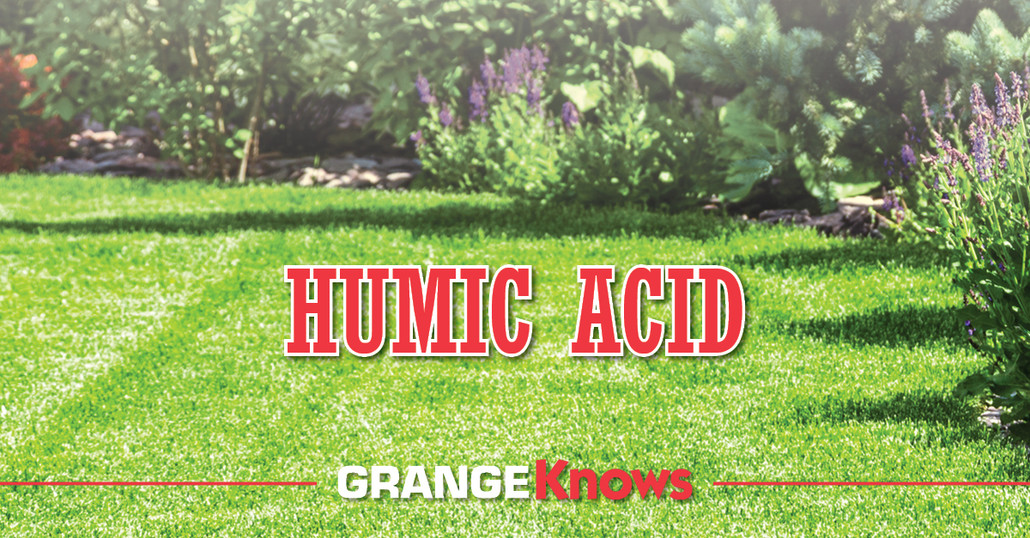
Soil Activating Humates for Lawn Care
Posted by Grange Co-op on 18th Jul 2019
Struggling to earn your green thumb? Or maybe all you wish for is GREEN lawn! This GrangeKnows article will provide recommendations for maintaining a lush lawn. We will highlight one specific trick to growing healthy grass—soil activator humates. Used to help decompose thatch and green up grass, humic substances are an important element to healthy, fertile soil.
WHAT ARE HUMATES?
Humates hold nutrients in a usable form and release them to the growing plant as necessary. Ultimately prolonging the benefits of any fertilizer you choose to apply. They stimulate microbial activity in the soil, which aids in stronger, healthier plants. Humates are utilized to hold the benefits of fertilizer, distributing as necessary nutrients that increase root growth, plant and stem growth, and dark green leaves—all components to a great looking lawn. Soil activating humates also increase the water holding capacity of the soil. This helps plants tolerate drought better and correct drainage problems, ultimately making the soil easier to work with and grow in.
ADDITIONAL BENEFITS OF SOIL ACTIVATORS FOR LAWN USE

We recommend applying Rogue 23-3-13 All Season Lawn Fertilizer directly before applying the soil activator. This will ensure long lasting, uniform effects on your lawn. Soil activating humates promote decomposition of grass clippings and thatch, nutrients that assist in growing a strong lawn. They are excellent in helping newly planted seeds thrive, as well as strengthening existent turf grass. Strong grass is resistant to damaging insects, which is why you want to expand your benefits by adding this fertilizer prior to application.
APPLICATION
Humates improve the growth of beneficial micro-organisms in soil, like any garden compost, the longer it is used, the better your soil will become. We recommend using Natural Guard Soil Activator anytime between June to August, as well as any time you plan to overseed. This product is also ideal for preparing the soil for spring planting, similarly utilize it to amend the soil when you are preparing gardens as well.
THE PROBLEM WITH THATCH

Some question why thatch is a problem for healthy lawns if it indeed is just decomposing grass clippings? Thatch is not necessarily bad, but it can become a problem in excess. Thatch is grass clippings that aren’t decomposing properly. It becomes matted, acting as a vegetative layer blocking the grass roots from the soil. Not only can this ultimately kill your grass, but it creates a weak lawn that is more prone to disease, insects and does not winter well. It also acts like a sponge that absorbs rain and watering, leaving the actual soil dry.
Thatch generally indicates the soil isn’t bioactive enough to decompose it. This process can take some time to fully break up the thatch into rich, dark humus. After application of the soil activator, its important to keep the soil moist underneath the thatch layer. Do so by collecting grass clippings to avoid contributing to the thatch and fertilize regularly as your soil needs nitrogen to decompose thatch.
These steps are meant to simplify and assist with utilizing soil activating humates to establish a healthy lawn. For additional tips and advice please visit your local Grange Co-op to speak with one of our Grange Gardening Experts, we'd be happy to help.
